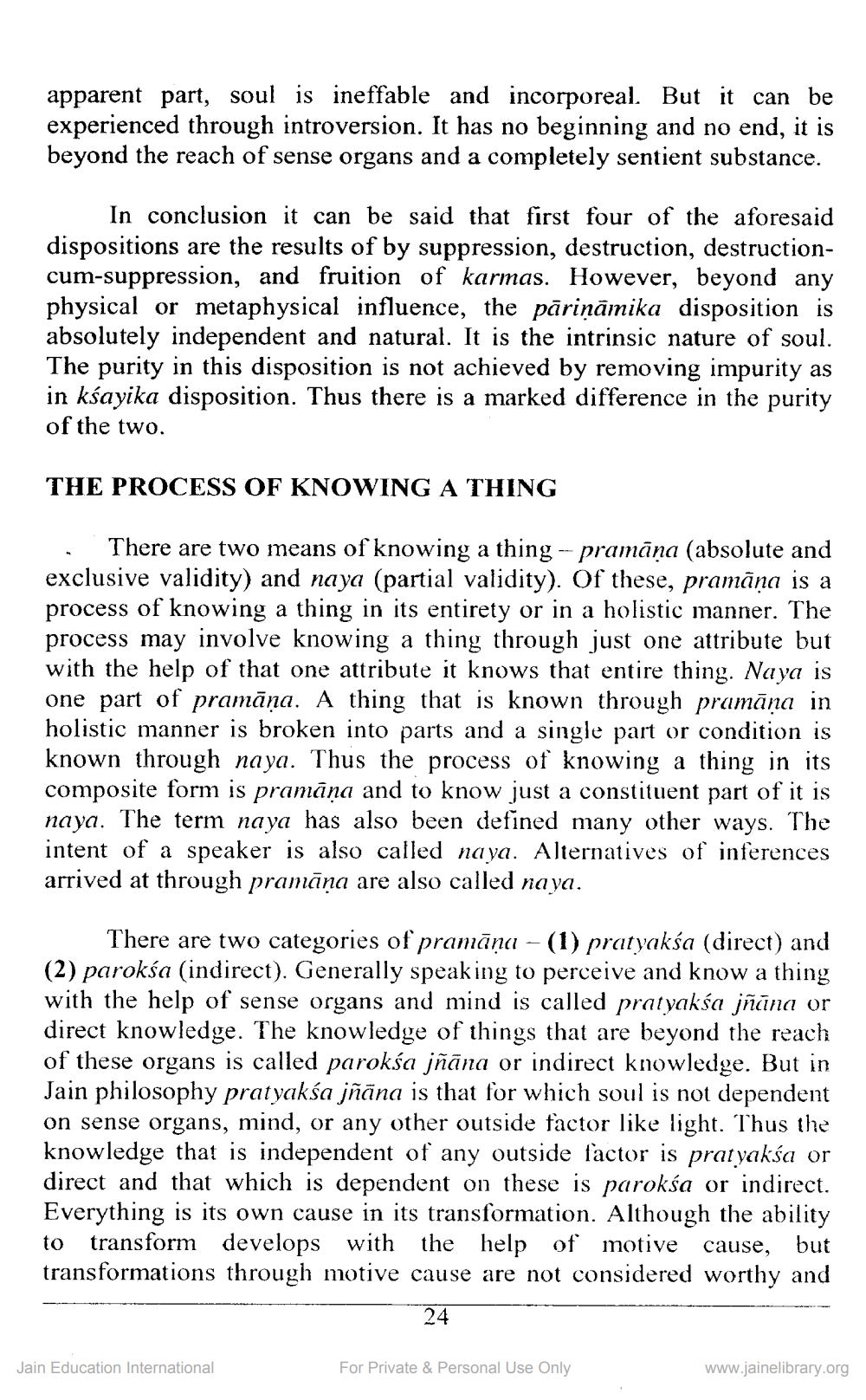________________
apparent part, soul is ineffable and incorporeal. But it can be experienced through introversion. It has no beginning and no end, it is beyond the reach of sense organs and a completely sentient substance.
In conclusion it can be said that first four of the aforesaid dispositions are the results of by suppression, destruction, destructioncum-suppression, and fruition of karmas. However, beyond any physical or metaphysical influence, the pāriṇāmika disposition is absolutely independent and natural. It is the intrinsic nature of soul. The purity in this disposition is not achieved by removing impurity as in kśayika disposition. Thus there is a marked difference in the purity of the two.
THE PROCESS OF KNOWING A THING
There are two means of knowing a thing - pramāņa (absolute and exclusive validity) and naya (partial validity). Of these, pramāņa is a process of knowing a thing in its entirety or in a holistic manner. The process may involve knowing a thing through just one attribute but with the help of that one attribute it knows that entire thing. Naya is one part of pramāņa. A thing that is known through pramāṇa in holistic manner is broken into parts and a single part or condition is known through naya. Thus the process of knowing a thing in its composite form is pramāņa and to know just a constituent part of it is naya. The term naya has also been defined many other ways. The intent of a speaker is also called naya. Alternatives of inferences arrived at through pramana are also called naya.
There are two categories of pramāņa - (1) pratyakśa (direct) and (2) paroksa (indirect). Generally speaking to perceive and know a thing with the help of sense organs and mind is called pratyaksa jñāna or direct knowledge. The knowledge of things that are beyond the reach of these organs is called paroksa jñāna or indirect knowledge. But in Jain philosophy pratyakśa jñāna is that for which soul is not dependent on sense organs, mind, or any other outside factor like light. Thus the knowledge that is independent of any outside factor is pratyaksa or direct and that which is dependent on these is paroksa or indirect. Everything is its own cause in its transformation. Although the ability transform develops with the help of motive cause, but transformations through motive cause are not considered worthy and
24
to
Jain Education International
For Private & Personal Use Only
www.jainelibrary.org




